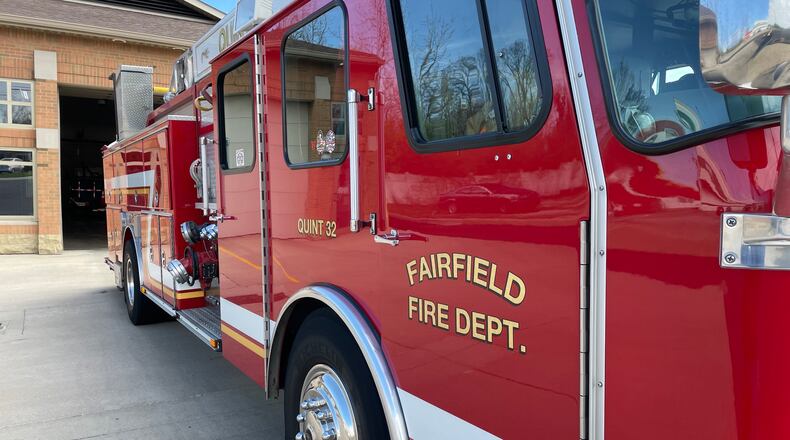The city sought the new continuing levy, which will replace the existing two continuing levies, because the budget was projected to soon be in the red. Fairfield Fire Chief Don Bennett previously said if the city remained operating at the “status quo,” it wouldn’t “meet the demands of the city.”
“We are at a critical point with the fire department that we can no longer sustain the required level of service under this staffing model, using career and part-time personnel,” the chief previously told the Journal-News.
The city spent $1.4 million on overtime costs in 2021, which Bennett had equated that to an “interest-only loan.”
The fire department, like others, used to have no problems attracting part-time firefighters. In the mid-1980s, Fairfield was one of the first fire departments in the region to incorporate a combination fire department model. While this allowed the department nearly 40 years ago to build a bench of firefighters who would develop knowledge and skills, that model does not work nowadays.
As early as 10 years ago, Fairfield saw part-time personnel stay anywhere from two-and-a-half to three years. But today, that average is around 10 months. And since 2015, nearly 150 part-time firefighters left either for a full-time job or the field altogether.
Ohio polls are closed for the May 3 primary election. In Butler County, there was a voter turnout of 16.95% with early votes and Election Day votes cast. #ElectionDay @journalnews pic.twitter.com/4qE4rkCH2q
— Michael D. Pitman (@MDPitmanJournal) May 3, 2022
The passage of the levy will allow Fairfield to become a career fire department, where there are no part-time positions. The plan is to convert the 36 part-time spots into 18 full-time positions over time. For each full-time position created, two part-time positions would be eliminated. Up to six of those full-time positions are expected to be added this year, and three full-time positions will be added annually between 2023 and 2026.
The city is currently authorized to have 39 full-time firefighters with the 36 part-timers.
“It’s going to take us a little bit of time to transition (into a career department),” said Fairfield Deputy Fire Chief Tom Wagner on Election Night. “Obviously, it’s going to take some time for the levy to take effect and for that money to come in, and time for us to recruit, too.”
Wagner said they do anticipate similar issues they faced finding part-time firefighters, they’ll find issues “finding good quality career people.”
“There’s a lot of competition in southwest Ohio, so we’re thankful and very grateful for the citizens to give us this opportunity to get out in front of this problem.”
Fairfield property owners currently pay a collective 7.15 mills on two continuing fire levies ― one approved in 2000 and one approved in 2016. With the approved levy, those levies will go away and the 9.25-mill levy would be installed in 2023. This levy will increase property taxes. The owner of a $150,000 home would pay $485.63 a year, which is an increase of about $200, according to the city.
The failure of the levy would have resulted in a dire situation for the fire department. Without the levy, the fire department would have required supplemental funding from the city’s general fund, and projections showed the city would have depleted the required rainy day fund by 2029 and put the city’s Aa1 bond rating (the second-best possible rating) at risk.
Supplementing the fire department would have also reduced funding for other high-priority items, such as the police department, capital projects, street improvements, and economic development, according to Fairfield Finance Director Jake Burton.
About the Author

